Many of tech's power-players are alumni of Peter Thiel's controversial fellowship, which pays entrepreneurs to drop out of college. See how they made their millions.
Samantha Delouya

- In 2011, Silicon Valley giant Peter Thiel created a fellowship that pays young entrepreneurs to drop out of college.
- The program initially faced backlash, but the fellowship now counts many powerful young figures as alumni.
What is the Thiel Fellowship?

Peter Thiel is a giant in Silicon Valley. After co-founding PayPal with Elon Musk and Max Levchin, Thiel went on to found Palantir. He's the first outside investor in Facebook and has invested in other tech success stories like SpaceX and Airbnb.
Thiel is also a vocal supporter of libertarian and conservative politics and once told a podcast host that too much education has "brainwashed" Silicon Valley.
In fact, Thiel created a fellowship in 2011 that encourages entrepreneurs to choose the path less traveled and skip college altogether.
The Thiel Fellowship, which started in 2011, "gives $100,000 to young people who want to build new things instead of sitting in a classroom," according to the fellowship's website.
The controversy

The program had a rocky start in its first few years, according to the book "The Contrarian: Peter Thiel and Silicon Valley's Pursuit of Power" by Max Chafkin.
Some fellows, who were as young as 16, had never been in charge of their own finances and felt they were left adrift by the program.
"It was college without the classes, a residential community, or studying — in short, most of what was enriching about college," wrote Chafkin.
The program attracted critics. In a 2013 piece, entrepreneur and academic Vivek Wadhwa wrote, "Sadly, for the vast majority of college dropouts, the opportunities are sparse. They won't earn nearly as much as their friends who had the perseverance to finish what they had started. And if they do become entrepreneurs, the companies they start will be far less successful than those started by degree holders."
Despite the program's controversy, it has produced multiple towering figures in Silicon Valley. See some of the fellowship's notable alumni:
Vitalik Buterin

Vitalik Buterin is the mastermind behind the decentralized blockchain platform Ethereum.
Buterin was selected as a Thiel Fellow in 2014 at 20 years old. By that time, he had already started Ethereum and Bitcoin Magazine.
Since his fellowship, Ethereum has grown to become the world's second-largest cryptocurrency.
As the price of cryptocurrencies shot up in 2021, Buterin's personal fortune rose to about $1.5 billion, according to Bloomberg.
However, since then, the price of Ethereum has sunk, and so did Buterin's fortune. Last May, he tweeted that he's no longer a billionaire.
Dylan Field
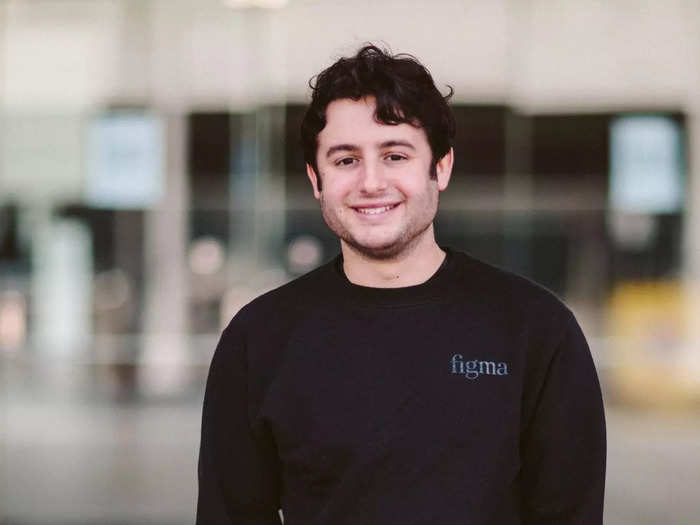
Field is now the wealthiest person to go through Thiel's fellowship, according to Bloomberg.
He dropped out of Brown in 2012 to accept the opportunity and co-founded a software company called Figma to challenge Adobe's PhotoShop.
A decade later, in September 2022, Adobe announced it would acquire Figma in a deal valued at $20 billion, making Field a billionaire.
In a 2020 LinkedIn blog post where he discussed his Thiel Fellowship application, Field said his original pitch was about drones, not web design.
"Startups are creative endeavors and they usually don't follow clean, predictable trajectories, especially in the early days. The "perfect idea" rarely comes from fancy spreadsheets and market analysis," he wrote.
Laura Deming
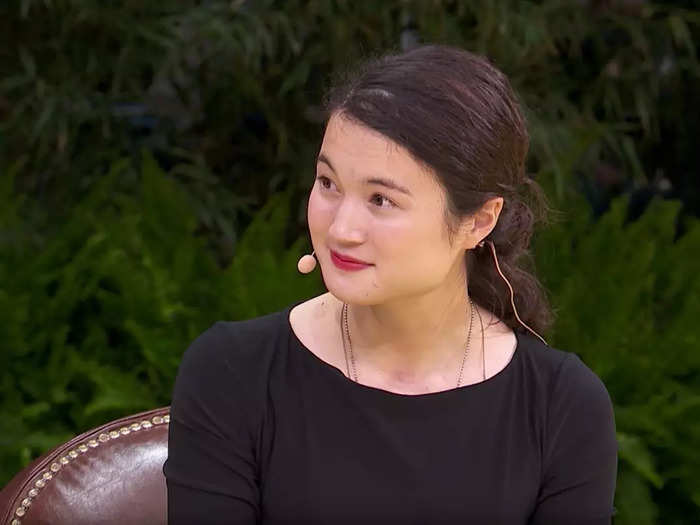
Deming was part of the Thiel Fellowship's inaugural class in 2011.
She began working in a lab at age 12 and was enrolled at MIT by age 14. She dropped out at 16 to pursue Thiel's program.
In a press release announcing the first round of Thiel Fellows, Deming was touted as trying to find a scientific cure for aging. Since her time in Thiel's program, though, she has pivoted to venture capital investing.
In 2017, when Deming was 23 years old, her fund, called the Longevity Fund, raised $22 million.
Lucy Guo

Guo was selected for the 2014 class of fellows at age 19. She had been making profitable websites since she was in 6th grade, according to the fellowship's press release.
During her 2-year stint in Thiel's fellowship, Guo worked on a platform that would allow students to complete schoolwork via multiplayer games, according to the release.
Since then, Guo was hired as Snap's first female designer, and she cofounded an artificial intelligence firm called Scale AI, which is worth $7.3 billion as of 2021, according to Crunchbase. Most recently, Guo founded Passes, which is a web3 platform for creators.
According to Forbes, Guo is worth $440 million.
Austin Russell
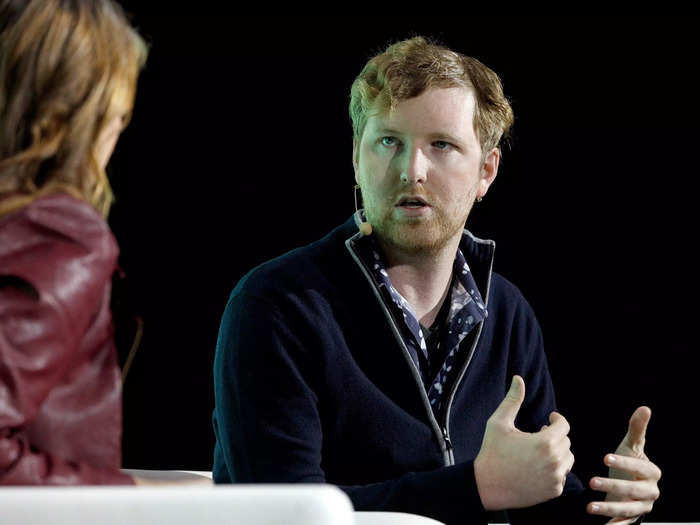
Russell became the world's youngest self-made billionaire at age 25, according to Forbes.
Russell is the founder of Luminar Technologies, which develops technology for self-driving cars, and has a partnership with Volvo.
Russell dropped out of Stanford in 2012 after winning Thiel's fellowship prize. He had the idea for the self-driving tech company since he was in high school.
Luminar publicly listed its shares on the Nasdaq in 2020, and Russell's wealth skyrocketed. He is now worth more than $1 billion, according to Forbes' latest calculations.
Joshua Browder
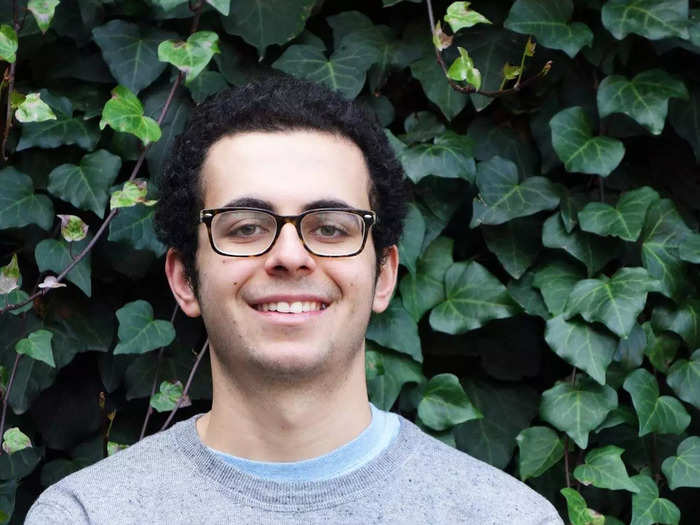
Browder joined the 2018 class of Thiel fellows after dropping out of Stanford.
He founded DoNotPay, a "robot lawyer" that helps users fight parking tickets and negotiate cable bills.
Recently, Browder attempted to use AI to help a defendant fight a traffic ticket in court but dropped the effort after receiving threats of possible jail time.
Nevertheless, DoNotPay has raised more than $27 million in funding, according to Crunchbase.
Browder also started a venture capital firm called Browder Capital, through which he invested in fellow Thiel alum Dylan Field's company Figma before its $200 billion acquisition by Adobe.
Ritesh Agarwal
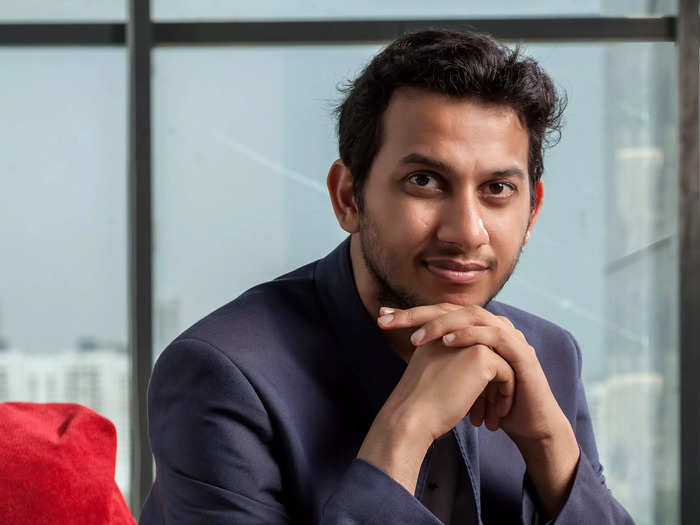
Agrawal, the founder of OYO Rooms, was selected for Thiel's fellowship in 2013.
OYO is a budget hotel chain that began in India but has expanded across Asia, Europe, and America.
It has raised $4 billion in funding, according to Crunchbase.
Robert Habermeier
Habermier had already cofounded Polkadot alongside another Ethereum cofounder, Gavin Wood, when he was accepted as a Thiel Fellow in 2018.
Polkadot is a web3 company, blockchain platform, and cryptocurrency. It is sometimes referred to as the "Ethereum killer," according to a recent report.
Polkadot's price has fallen significantly, but the cryptocurrency's market cap still hovers near $8 billion.
Popular Right Now
Popular Keywords
- India’s wearables market decline
- Vivo V40 Pro vs OnePlus 12R
- Nothing Phone (2a) Plus vs OnePlus Nord 4
- Upcoming smartphones launching in August
- Nothing Phone (2a) review
- Current Location in Google
- Hide Whatsapp Messages
- Phone is hacked or not
- Whatsapp Deleted Messages
- Download photos from Whatsapp
- Instagram Messages
- How to lock facebook profile
- Android 14
- Unfollowed on Instagram
Advertisement